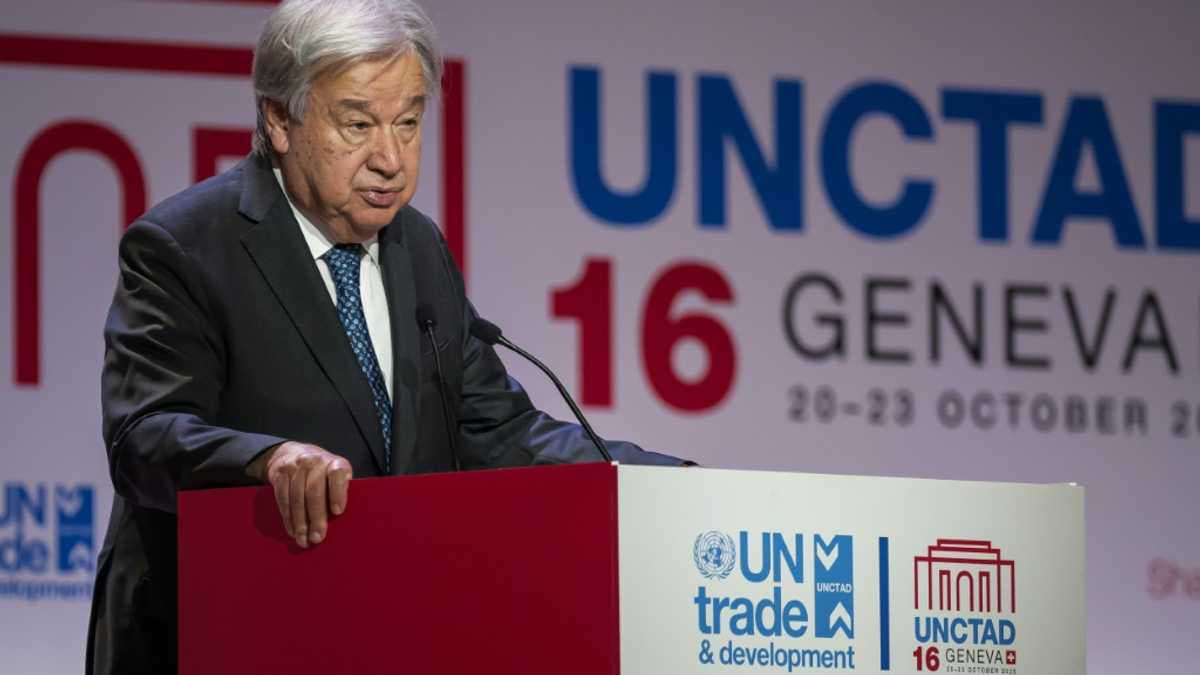We're loading the full news article for you. This includes the article content, images, author information, and related articles.
António Guterres’s stark warning of 'devastating consequences' amplifies the urgency for Kenya, as East Africa confronts a worsening cycle of extreme droughts and floods ahead of the critical Cop30 climate summit.

NAIROBI, Kenya – United Nations Secretary-General António Guterres has delivered a sobering assessment of global climate efforts, declaring that humanity has failed to prevent global temperatures from overshooting the critical 1.5°C warming limit set by the Paris Agreement. In an exclusive interview on Monday, 27 October 2025, ahead of the Cop30 climate summit in Belém, Brazil, Guterres stated the breach is now "inevitable," warning of "devastating consequences" and the risk of crossing catastrophic tipping points.
For Kenya and the wider East African region, this global failure is not a distant headline but a present and escalating reality. The nation is already grappling with the severe impacts of climate change, manifesting in a destructive cycle of prolonged droughts followed by catastrophic floods that have claimed lives, displaced communities, and crippled key economic sectors.
The UN chief’s admission was based on the stark reality of insufficient emissions cuts from the world's nations. His warning comes as the World Meteorological Organization (WMO) confirmed that 2024 was the hottest year in its 175-year observational record, reaching approximately 1.55°C above pre-industrial levels. The WMO also reported that the last ten years were collectively the warmest decade ever recorded. Guterres specifically highlighted the danger of irreversible damage to crucial global systems like the Amazon rainforest and polar ice sheets.
In East Africa, these global statistics translate into tangible hardship. The region has swung violently between climate extremes, from the worst drought in 40 years, which pushed millions into severe hunger across Kenya, Somalia, and Ethiopia, to devastating El Niño-related floods. In late 2023 and early 2024, floods in Kenya led to the deaths of at least 174 people, displaced over half a million households, and destroyed thousands of acres of farmland. This volatility directly threatens Kenya's economic pillars, particularly rain-fed agriculture, which supports a majority of the population and is a significant contributor to the nation's GDP.
Despite contributing negligibly to global emissions, Africa is the most vulnerable continent to climate change. Kenya has positioned itself as a continental leader in climate action. The country hosted the inaugural Africa Climate Summit in September 2023, which culminated in the Nairobi Declaration, a unified call for a global carbon tax system and a significant overhaul of the international financial architecture to fund climate action in developing nations. President William Ruto has championed this stance, pointing to Kenya's own progress, with over 90% of its electricity generated from renewable sources like geothermal and wind power.
Kenya’s national climate plan, its Nationally Determined Contribution (NDC), commits to reducing greenhouse gas emissions by 32% by 2030. In May 2025, the country submitted its second NDC, deepening this commitment with a pledge to cut emissions by 35% by 2035, an effort estimated to require USD 56 billion in investment. However, these national efforts are severely undermined by the failure of major global emitters to curb their pollution, leaving vulnerable countries like Kenya exposed to impacts they cannot control.
Guterres's call for the world to "change course now" sets a tense backdrop for the upcoming Cop30 summit. For African nations, the agenda is clear. The African Group of Negotiators (AGN) has identified key priorities, including securing predictable and scaled-up climate finance, particularly for adaptation, and operationalizing a just transition to clean energy. African leaders are pushing for a new global climate finance goal that reflects the continent's immense needs, demanding that funding be delivered primarily as grants, not loans that deepen debt crises.
The UN chief's stark admission that the 1.5°C goal has been missed serves as a critical call to action. For Kenyans, it underscores that the fight against climate change is a fight for the nation's economic stability, food security, and the well-being of its people. The outcomes of the negotiations in Belém will determine whether the world can rally to mitigate the "devastating consequences" that are already unfolding across East Africa.
Keep the conversation in one place—threads here stay linked to the story and in the forums.
Other hot threads
E-sports and Gaming Community in Kenya
Active 8 months ago
The Role of Technology in Modern Agriculture (AgriTech)
Active 8 months ago
Popular Recreational Activities Across Counties
Active 8 months ago
Investing in Youth Sports Development Programs
Active 8 months ago